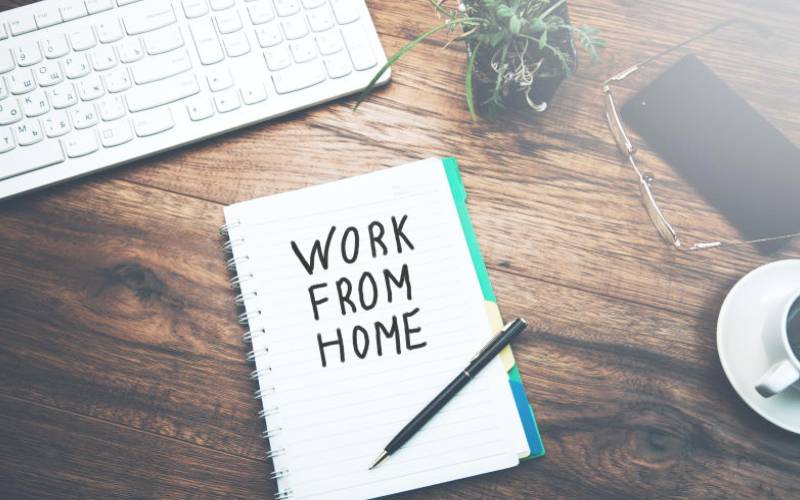
As the world comes to terms with the spread of coronavirus, it is becoming apparent that more needs to be done to curb the disease.
Social media has been awash with photos and videos of workers in essential service fields, urging the masses to stay home.
At some point, it became laughable, with memes shared even more widely on what fun it would be to work from home.
Well, working from home does come with its advantages. They include not having to wake up at the crack of dawn and sit in traffic for hours on end.
However, is there a chance that working from home may not be as fun as anticipated?
According to UN Women, social impact of the Novel Coronavirus is hitting women hard.
For many, what makes the balance work is knowing what entails 'work' and what is 'home'.
Women make up to 70 per cent of workers in Health and social sector.
In a statement on its site, UN Women executive director Phumzile Mlambo-Ngcuka said, “The majority of health workers are women and that puts them at highest risk. Most of them are also parents and care givers to family members. They continue to carry the burden of care, which is already disproportionally high in normal times. This puts women under considerable stress."
Adressing the press in Nairobi on Sunday when he issued an update on coronavirus in Kenya, President Uhuru Kenyatta urged corporates to allow staff work from home where possible.
But according to Phumzile, when households are placed under strain and in contexts of family violence, as strategies for self-isolation and quarantine are employed, the risk of such violence tend to increase.
Reports from some impacted communities are showing that covid-19 is driving similar trends right now.
The evidence is also mounting that the economic impacts of covid-19 will hit women harder, as more women work in low-paying, insecure and informal jobs, the statement added. UN Women Programme and Intergovernmental Division Policy director Sarah Hendriks says the agency is working with partners to make sure the gender-differential impact of coronavirus is taken into account in the response strategies at country, regional and global levels. The agency further states that as more countries enact closure of schools to contain the spread of covid-19, women’s ability to engage in paid work faces extra barriers. "In times of crisis, women often face the unfair and sometimes impossible choice of giving up paid work to care for children at home." The agency issued a set of recommendations placing women’s needs and leadership at the heart of effective response to covid-19. They include: Provide priority support to women on the frontlines of the response, for instance, by improving access to women-friendly personal protective equipment and menstrual hygiene products for healthcare workers and caregivers, and flexible working arrangements for women with a burden of care Ensure equal voice for women in decision making in the response and long-term impact planning Ensure that public health messages properly target women including those most marginalised Develop mitigation strategies that specifically target the economic impact of the outbreak on women and build women’s resilience Protect essential health services for women and girls, including sexual and reproductive health services and Prioritise services for prevention and response to gender-based violence in communities affected by covid-19 The Standard Group Plc is a multi-media organization with investments in media
platforms spanning newspaper print
operations, television, radio broadcasting, digital and online services. The
Standard Group is recognized as a
leading multi-media house in Kenya with a key influence in matters of national
and international interest.
The Standard Group Plc is a multi-media organization with investments in media
platforms spanning newspaper print
operations, television, radio broadcasting, digital and online services. The
Standard Group is recognized as a
leading multi-media house in Kenya with a key influence in matters of national
and international interest.











